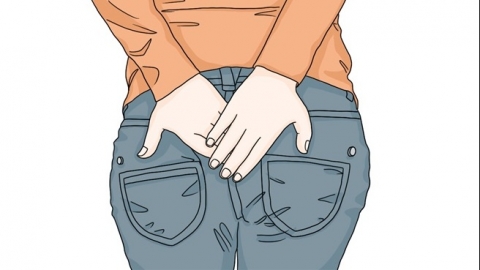What are the risks of leaving hemorrhoids untreated?
Hemorrhoids that go untreated may generally lead to worsened rectal bleeding, prolapsed hemorrhoids becoming trapped (incarceration), anemia, perianal infection, and abnormal anal function. If any abnormalities occur, prompt medical attention is recommended. Detailed explanations are as follows:

1. Worsening Rectal Bleeding: In the early stages, hemorrhoids may cause only minor bleeding. If left untreated, repeated friction and irritation during bowel movements can further damage the mucosal surface of the hemorrhoid, increasing the amount of bleeding. Bleeding may progress from slight dripping to jet-like bleeding, significantly affecting quality of life.
2. Prolapsed Hemorrhoid Incarceration: As the condition progresses, hemorrhoids gradually enlarge and may protrude from the anus. If not promptly pushed back in, they can become trapped at the anal opening, causing incarceration. This can obstruct local blood circulation, leading to swelling, severe pain, and potentially tissue necrosis due to ischemia.
3. Anemia: Prolonged rectal bleeding without intervention can lead to continuous loss of iron in the body, causing iron-deficiency anemia. Symptoms may include dizziness, fatigue, palpitations, and shortness of breath. Severe cases can impair the normal function of various organs.
4. Perianal Infection: Mucus often exudes from the surface of prolapsed hemorrhoids, creating an environment conducive to bacterial growth. If untreated, excessive bacterial proliferation can cause perianal skin infections, resulting in itching, pain, and even extension to the rectum, causing rectal inflammation.
5. Anal Dysfunction: Long-term, untreated hemorrhoids can cause anal sphincter laxity, impairing normal contraction function and potentially leading to fecal incontinence. Recurrent inflammatory irritation may also cause anal stenosis, resulting in difficulty passing stool.
Timely intervention is necessary upon noticing symptoms of hemorrhoids to prevent worsening of the condition. Maintaining anal hygiene, adjusting dietary habits to include more fiber-rich foods, and avoiding prolonged sitting or standing are recommended. If symptoms such as rectal bleeding or pain worsen, prompt medical consultation and standardized treatment are essential.




